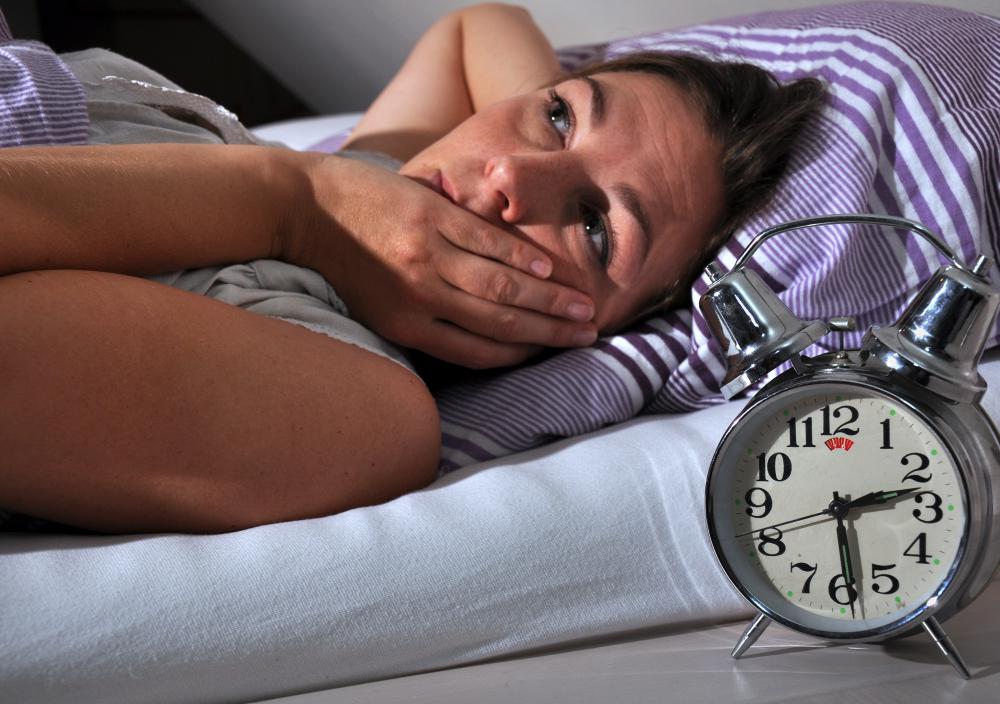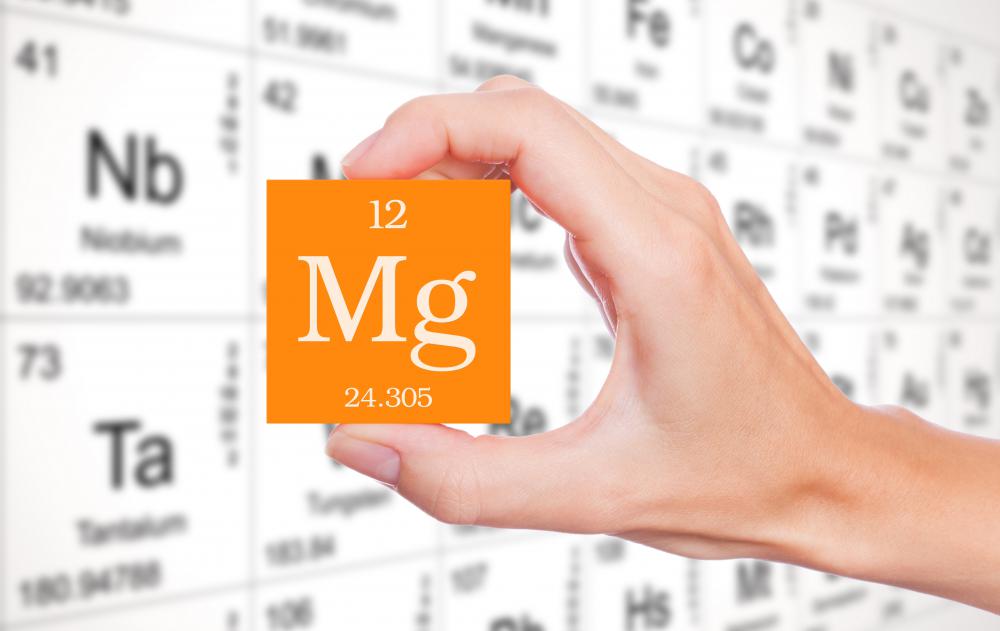At WiseGEEK, we're committed to delivering accurate, trustworthy information. Our expert-authored content is rigorously fact-checked and sourced from credible authorities. Discover how we uphold the highest standards in providing you with reliable knowledge.
How do I Use Magnesium for Sleep?
For people who suffer with an occasion inability to get a good night’s rest, using the dietary supplement magnesium for sleep is sometimes recommended. This is especially true for people who have tried over the counter or prescription sleep aids and either experienced unpleasant side effects or gained no benefit from the drugs. While the use of magnesium for sleep is often effective, precautions should be taken to balance the dose, making it possible to enjoy the benefits without experiencing problems due to a magnesium overdose.
Many people are not aware that magnesium deficiency can lead to an inability to get to sleep or to reach a stage in which truly recuperative sleep is experienced. This is because magnesium is one of the minerals essential for maintaining a healthy nervous system and supply of nutrients to the brain. A lack of magnesium in the body can interfere with the production of key neurotransmitters that aid balancing mood and allowing the body to slip into restful slumber. One of the nutrients that magnesium helps the body to absorb to best advantage is calcium, which also plays a role in establishing healthy sleep patterns.

The use of magnesium for sleep often calls for combining the mineral with a specific amount of calcium, and taking the combination an hour or so before bedtime. Depending on the recommendations of a particular health practitioner, this may mean taking equal amounts of both minerals, or it may involve taking two parts calcium to one part magnesium. Once the most effective dosage is identified, the individual can look forward to falling asleep with greater ease and experiencing fewer episodes of waking up during the night. Best of all, the quality of sleep is enhanced, allowing the individual to awake feeling refreshed and energized rather than tired and irritable. As a result of using magnesium for sleep, it is usually easier to concentrate during the waking hours, enjoy a more balanced mood, and handle stress with greater efficiency.

There is a chance of experiencing a magnesium overdose if too much of the mineral is ingested within a short period of time. While a person is unlikely to experience an overdose of magnesium from the diet, taking too many supplements may lead to this condition and cause side effects like bloating or even nervous jitters. Many health practitioners consider 500 mg of magnesium, especially when taken in conjunction with calcium, to be safe and sufficient for most therapeutic purposes. Should an individual try magnesium for sleep and experience any unpleasant side effects, the therapy should be discontinued and a health care professional consulted immediately.
AS FEATURED ON:
AS FEATURED ON:


















Discussion Comments
@Mor - I don't know, I think magnesium is mostly found in green plants and there are plenty of people who don't get enough of those in their diets.
Although I would suggest instead of taking supplements they should just correct their diets to include more fresh fruits and vegetables as they are probably missing out on all kinds of other things that could help them sleep better.
Magnesium is also supposed to help with calcium absorption, so it's a generally good mineral to get in your diet.
I've actually heard of magnesium more often in relation to depression rather than magnesium and sleep, but perhaps the two are related.
They've done a couple of experiments where people with low magnesium, who were depressed, because less depressed when they took supplements.
It seems to me like magnesium supplements are only going to help you sleep if you have a deficiency in the first place.
Often with trace minerals like this people talk about how great they are as vitamins and how they can be used like medicine. But, really they only make your body work the way it's supposed to. It's taking away the vitamins that creates the abnormal condition. In other words, if you don't have a magnesium deficiency and you take supplements they aren't going to do anything for you.
Which is not to say that you shouldn't try the supplements, of course, because it's possible that's exactly what the trouble is and they will help. But don't expect them to be a miracle cure. Most people get by without them because magnesium is obtained fairly easily in the diet.
Post your comments